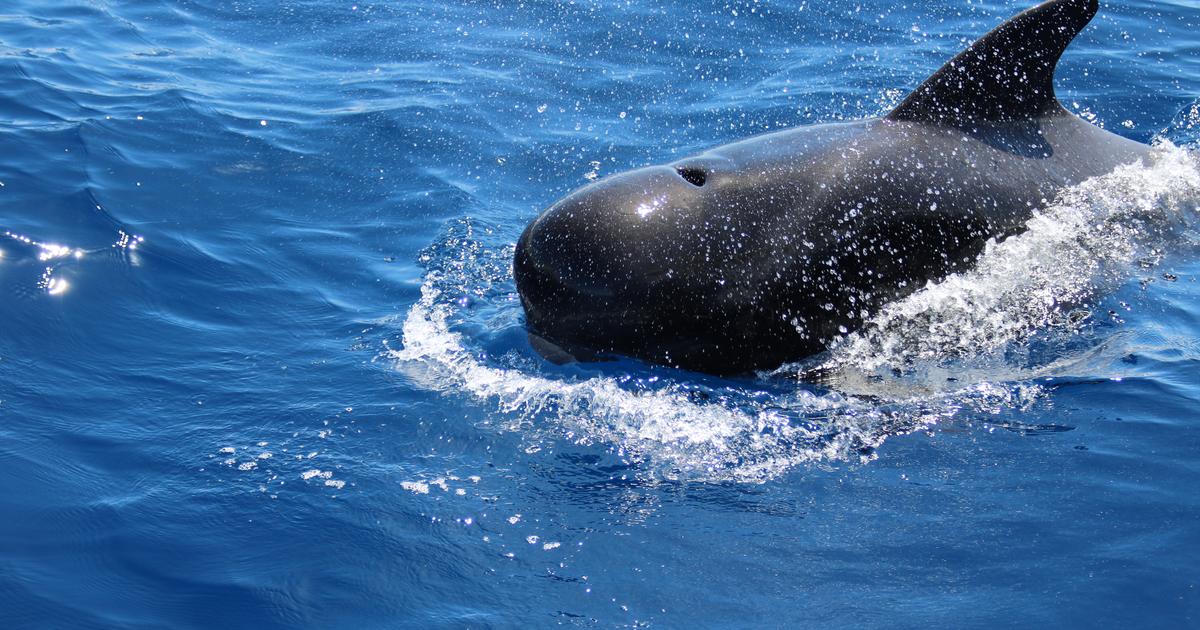Enlarge image
Blue Whale in the Indian Ocean
Photo: NurPhoto / NurPhoto via Getty Images
With an unusual experiment, scientists want to save the heavily polluted oceans.
An international team of researchers will start scattering artificial whale feces in the Indian Ocean in the next few weeks.
The research group around the Center for Climate Repair at the University of Cambridge wants to find out whether nutrient-poor marine ecosystems can be restored by such an intervention.
This is how fish populations should recover.
It could also help in the fight against the climate crisis.
It has long been known that Walkot acts as a fertilizer in the oceans.
The marine mammals feed on krill, small crustaceans whose orange color can be clearly seen in the faecal cloud.
The faeces of the animals contain important nutrients for plants and animals.
More than ten years ago, zoologists from Harvard University described the »whale pump«, the drive of the food cycle by marine mammals: According to this, the animals feed in the depths and then distribute nitrogenous, digested food in the warm surface water.
There it spreads and promotes plankton growth, which also includes krill.
Marine biologists also refer to whales as the "gardeners of the sea" because of their extensive excrement.
But there is an acute shortage of whale excrement.
The whale population has plummeted over the past few centuries.
Today there are only around five percent of the original stock, mainly due to hunting, but also due to the pollution of the world's oceans.
According to the researchers, they are now lacking the nutrients from the whale poo.
That's why they now artificially produce the feces.
Among other things, they want to use rice husks from a rice factory near the Indian city of Goa, as the Guardian writes.
Walkot as a climate saver
"We're trying to repopulate the ocean," climate researcher and former British government adviser David King told New Scientist magazine.
He heads the Center for Climate Repair in Cambridge, which deals with alternative methods of »climate intervention«.
The research center develops methods for artificial interventions in the environment in order to mitigate the consequences of climate change.
The artificial fertilization of the sea should not only ensure more fish growth, but also have a climate effect: Through photosynthesis, phytoplankton extract CO₂ from the atmosphere and bind it to form carbon.
When fish eat the plankton and die, some of the carbon gets trapped in the sea floor.
"I don't know if the experiment will be the definitive answer," says researcher King.
"But we want to try it as long as there is no potential damage to the oceans," says King.
First, the researchers want to scatter the whale poo over a relatively small area.
If the experiment works, the idea could also work on a larger scale, initiators hope.
Then the whale feces could be deliberately scattered off coasts to increase fishing.
sug







/cloudfront-eu-central-1.images.arcpublishing.com/prisa/6W5UW5NK5ZH77N2RSC3TBYR33Y.jpg)
/cloudfront-eu-central-1.images.arcpublishing.com/prisa/NIFZFFYBFVAU5FVWDHC43ESC5M.jpeg)
